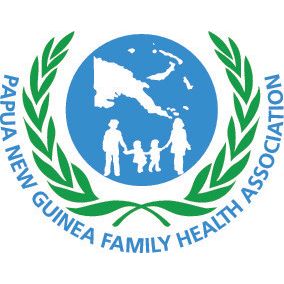

| 31 March 2016
Associação Moçambicana para Desenvolvimento da Família
The Mozambican Association for Family Development (AMODEFA) was formed in 1989. Like most IPPF Member Associations, the initial focus of the organization was family planning, but over the years it has diversified to cover a broader range of sexual and reproductive health (SRH) requirements, including emergency obstetric care, pre- and post-natal care, and services dedicated to the prevention, treatment and management of HIV and AIDS. As the high HIV prevalence rates demonstrate, there is a desperate need for sustained efforts on this front. AMODEFA has responded to the challenges of HIV and AIDS with a community-based, clinic-based approach linked to home-based care. With private sector sites, mobile and community-based service points, the Member Association raises awareness and combats HIV and AIDS stigma and discrimination, and provides referrals. AMODEFA uses the HIV, Gender and Sexuality link through comprehensive sex education in schools and outside schools to drive HIV prevention. AMODEFA staff, is supported by hundreds of volunteers, a youth action movement, peer educators and community-based distributors (CBDs). In its advocacy role, AMODEFA has provided advice and influenced the Ministry of Health, Ministry of Education and Human Development, Ministry of Gender, Children and Social Action, Ministry of Justice, Secretary for Youth and Employment and Parliament to adopt supportive national legislation and practices, particularly with regard to adolescents and youth. The Member Association works with governmental and non-governmental organisations, such as the National HIV and AIDS Council, PLASOC, the Network for Sexual and Reproductive Rights and with private sector such as ECOSIDA. AMODEFA's donors include UNFPA, OIM, Global Fund, AFRIKAGRUPPERNA, DIAKONIA and JFT. The Organization is a member of PLASOC - Platform of Civil Society Organizations for Health, RDSR - Sexual and Reproductive Rights Network, CECAP - Coalition for the Elimination of Premature Unions.

| 09 December 2020
Papua New Guinea Family Health Association
The Papua New Guinea Family Health Association (PNGFHA) was established in 1981 and registered in the same year under Section 7 of the Associations Incorporation Act, Papua New Guinea. PNGFHA became an IPPF Collaborative Partner in 2001 and then an Associate Member, approved at the December 2020 Board of Trustees meeting. The Association's Head Office was originally based in Lae, Morobe, but was relocated to the capital Port Moresby, in 2015. PNGFHA currently operates across 8 static clinics in Port Moresby (3), Lae, Markham and Bulolo (Morobe Province), Goroka (Eastern Highlands Province), and Kokopo (East New Britain Province), and are operated from facilities provided either by the Provincial Health or the district authorities. PNGFHA has a staff of 25, both clinical and non-clinical, and is supported by an extensive network of volunteers. Each clinic has regular outreach services to remote populations, providing safe and confidential SRH services and raising awareness. In 2021, PNGFHA delivered 220,038 SRH services to 53,497 clients, more than 90 per cent of whom were poor/ vulnerable. The clinics provide a wide range of SRH services including STI and HIV awareness, family planning, responding to cases of gender-based violence, and counselling. Legal services for survivors of sexual and gender-based violence (SGBV) are also provided due to need. Other programs include the youth/adolescence comprehensive sexuality education with out-of-school and in-school youths. Various outreach programs such as mobile clinics and awareness have also been implemented in partnership with local Provincial Health authorities. Currently PNGFHA have 3 furnished operational youth centres and youth clinic which provide support for the youth volunteer network, community outreach, CSE both in and out of school. Youth friendly spaces offer youth the opportunity to access information, receive counselling and a friendly safe space where young people can meet and share ideas. The youth friendly clinic provides access to quality and relevant youth centred SRH services and referrals, in the case of SGBV, by staff that are sensitive and trained to dealing with young people. Outreach involves activities mostly identified by the young people themselves, ranging from awareness in a school settings and communities, during a community event, community and government organised activities such as cultural shows and sports events. Through outreach events, trained youths are able to reach out to their peers and motivate them to access more information and services.







